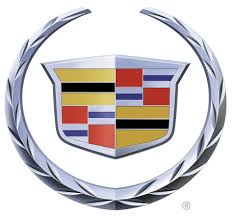Fleetwood FWD V8-252 4.1L (1986)

PROM - Programmable Read Only Memory: All Technical Service Bulletins
Engine - Stops Running During Parking or Coast Down
Bulletin No. T
87-75
File in Group
6E
Number
42
Corp. Ref. No.
616510
Date
Feb. '87
SUBJECT:
ENGINE MAY STOP RUNNING DURING PARKING MANEUVERS OR DURING COAST DOWN AT LOW SPE
MODELS AFFECTED: 1986 DE VILLE/FLEETWOOD
Some 1986 FWD De Ville and Fleetwood vehicles may experience two separate conditions where the engine may stop running followed by an
immediate restart. (1) Some vehicles may exhibit this condition during parking maneuvers with the engine at normal operating temperature and with
power steering load applied (steering at full lock). (2) Some vehicles may have the engine stop running during coast down at low speeds when ambient
temperatures are greater than 85~F and after a warm soak, extended car idle, or during stop and go traffic. With high outside temperatures, the gasoline
in the fuel tank produces a high amount of vapor into the charcoal canister when the engine is off or idling. The canister then purges this vapor whenever
the throttle switch is open (off idle). As the vapor enters the combustion process, the oxygen sensor will detect a rich mixture driving the fuel integrator
lower. This compensates for the extra fuel from the canister. If the integrator (parameter P.1.4) drops to its lower limit of 88 counts and the throttle
closes cutting off the canister purge vapor, the engine may stop running. This condition is aggravated by fuel that has a high vapor pressure or high
alcohol content allowing it to evaporate quickly.
A new PROM has been released to eliminate both of the "engine stalls" symptoms during the above operating conditions. The new PROM (P/N 1228129
FED and 1228130 CAL) has revised idle speed control to repair this condition during parking maneuvers and revised fuel control to repair the condition
during coast down at low speeds.
Before replacing the PROM, perform the following checks:
1.
If the vehicle loses engine power or stops running under any other condition than described above, see the Diagnosis Section in the Service
Information Manual, Section 6E, Subsection B, page 6E-49.
2.
With the engine running, perform ECM switch tests (E.7.1 - E.7.8). Repair the cause of any switch test that does not pass using the appropriate
trouble tree in Section 8D1 of the 1986 De Ville/Fleetwood Service Information Manual.
Check PROM I.D. (parameter P.1.6). If PROM I.D. is not 258 for vehicles equipped with a Federal emission system or 264 for vehicles equipped with a
California emission system and, if all of these system performance checks indicate normal vehicle operation, replace the PROM with P/N 1228129 for
Federal emission or 1228130 for California emission system.
If the PROM does not repair this condition, refer to the 1986 De Ville/Fleetwood Service Information Manual Section 6E, Subsection B "Symptoms".
Pay particular attention to the following checks:
1.
Check the minimum air RPM using the procedure in Section 6E, Subsection C2 in the Service Information Manual.
2.
Connect a 0-15 psi fuel gauge to the fuel pressure test point.
CAUTION: When taking the following fuel pressure readings, be sure the fuel pressure gauge is securely attached to the pressure test point. Be careful
to route the pressure gauge hose away from the exhaust manifold, any other hot surfaces, and any sharp edges that could cut or damage the
hose. Failure to do so may result in a fuel leak while diagnosing the car.
Duplicate the condition while observing fuel pressure. If fuel pressure fluctuates during the maneuver, repair cause of fuel pressure fluctuation.
3.
Block the drive wheels and, using an oscilloscope, check ignition system with the engine under idle load condition in drive or reverse. Check for
spark plugs, ignition wires or coil, cap and/or rotor breaking down under load. A condition such as a cracked plug may cause abnormal engine
operation, yet be difficult to detect on a scope. Replace any suspect spark plugs or ignition wires and inspect the cap for arcing before proceeding
with diagnosis.
CAUTION: Brakes must be applied at all times.
For warranty purposes use Labor Operation J6364 at .5 hours.
